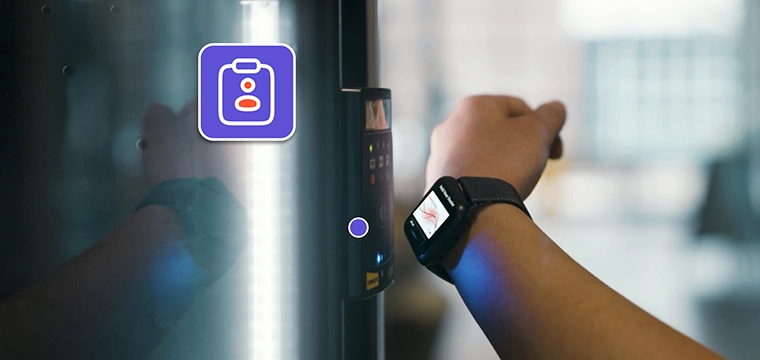 Campus card banking partners step up to educate student cardholders
Campus card banking partners step up to educate student cardholders
Get a bunch of students, mostly freshmen, away from home for the first time. Stick them all in a dorm, many of them are armed checks, a credit card, a student ID, their driver license and Social Security card. It’s a recipe for ID theft.
With that in mind many colleges and universities, with the help of their banking partners, have incorporated ID theft prevention into their financial seminars.
“We’ve done these seminars for years–how to manage credit – how to make a budget and now we have created ID theft prevention as an extension to financial wellness,” says Whitney Bright, vice president of campus cards for Minneapolis-based U.S. Bank. “The seminar is popular, not only with students but faculty and staff.”
That’s a sentiment echoed by Randy Hedge, director of university dining and Reeve Dining at University of Wisconsin Oshkosh. “When the university, with the help of U.S. Bank, held our ID theft program it was absolutely overflowing and at least 60-70 percent of those present were faculty and staff. People are very sensitive to the ID theft problem. It was an excellent program and U.S. Bank had several of their staff there that day.”
When the university signed with U.S. Bank three years ago, “they told us they wanted to do as many educational programs as we were interested in.” ID theft will be just one of programs, “but probably something we’ll do every year along with Banking 101,” he added.
Hedge learned many different techniques to prevent ID theft during the seminar. ” I know one in particular is you shouldn’t use your mailbox on the street to mail your bills.”
Bright recommends using a standard mailbox. “If you’re paying a bill, put it directly into the post office box instead of a college box. It’s very easy to get account numbers off those documents.”
U.S. Bank can incorporate ID theft into its other seminars or run it on its own. “It depends on who the audience is–students, faculty and staff–and how much time we have,” said Bright.
Seminar topics include protecting your Social Security number and phishing. Seminar participants are also given tips, such as shredding documents – particularly bank statements when you’re done with them – not responding to emails and the fact that “banks will never ask you to verify your pin numbers,” she adds.
Of particular useful tip for students living in a dorm is to secure or lock up any extra checks. The same measure should be taken for any credit or debit cards that aren’t in your wallets. “Why tempt someone?” asks Bright.
Credit card offers are another sources of ID theft. “Hopefully students are throwing most of those away,” she added.
Getting rid of a credit card? Don’t just throw it away, cut it in several pieces and deposit the pieces in different trashcans, Bright says.
She also suggests paying bills online rather than with a paper check. Internet payment sites are more secure, as designated by the “https” at the beginning of the address rather than the normal “http.”
And always go directly to the bank’s Web site. “Start from a fresh Web site and don’t link off another site or off another email. “I have my U.S. Bank site in my favorites so I know it’s going to the right site.”
Another tip: “Don’t carry your Social Security card around with you and don’t have it printed on your check. Most schools today have moved away from having a Social Security number tied to the ID card.”
Higher One educates cardholders online
Sean Glass, Higher One’s chief marketing officer, said the number one protection against ID theft is knowledge.
Higher One provides ID theft information online, Glass says. For example, the Web site of one of Higher One’s clients, the University of Houston, includes a box students can click on to learn how to protect against ID theft. “Most students are pretty savvy but preventing ID theft involves understanding how criminals work.”
One of the biggest threats is phishing, attempting, usually via email, to get the recipient to click on a link that looks like it came from the bank. A related scam involves “attempts to get information through social engineering. You get a phone call from someone saying their attempting to clean up their records.” In essence, such calls are attempts to get ID information that can help the scam artists steal identities. Social Security numbers are key, but they may also ask for dates of birth, mother’s maiden name and other demographic data.
“We tell our customers that if you get an email that doesn’t look like it came from us, don’t click on the information.”
Since Higher One is an Internet-based financial services provider, it’s important that students, faculty and staff be careful when dealing with any emails from the company. “Don’t assume it comes from us. Go to the URL on the back of your card to log in.”
He said Higher One has not “had many people reporting cases of ID theft.” Regardless, most banks and Higher One follow a zero liability policy “and we’ll work with the student to get his money back in any event.”
But ID theft, he says, isn’t as important as protecting your documents, especially the credit cards. “The number one way a card gets stolen is when it’s skimmed.” That usually happens when your credit card is out of your sight for a few minutes, such as when you’re paying for a meal at a restaurant. The waiter could capture that credit card number and later use it or sell the number. “The number one thing is awareness. When something doesn’t seem quite right, it probably isn’t,” he added.
Wells Fargo goes interactive
Wells Fargo’s Julia S. Tunis, assistant vice president of corporate communications, says the bank uses its web site not only for financial management training but other areas as well, including ID theft.
The bank’s Hands on Banking program (www.handsonbanking.org) “is a free, fun, interactive money management program that teaches the money skills needed for all stages of life. It covers ID theft, fraud, phishing/online scams and protecting your credit. In addition, we have published articles in the Student Wells Wire online newsletter about protecting yourself about identity theft.”
She said that Wells Fargo, for all customers, has online content about ID theft at www.wellsfargo.com/privacy_security/fraud/operate/idtheft.




